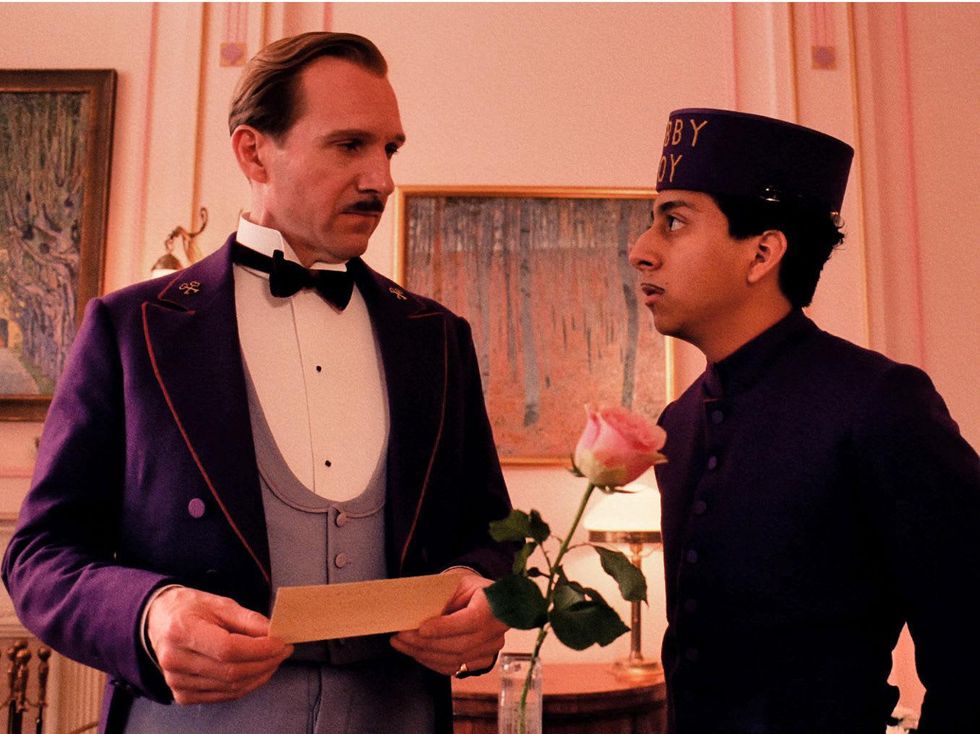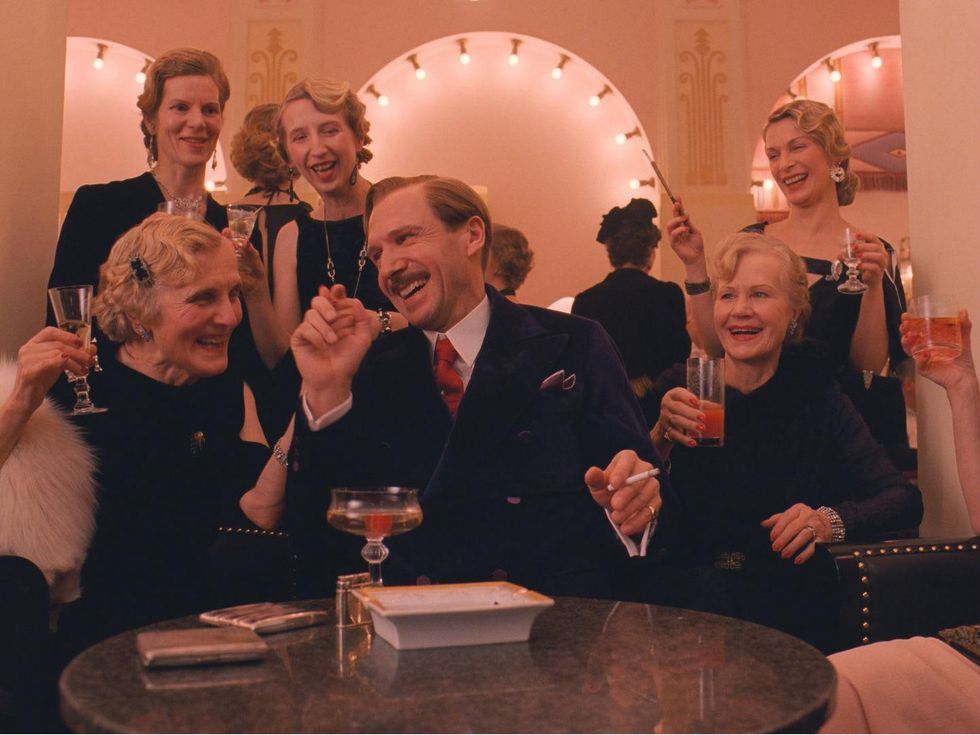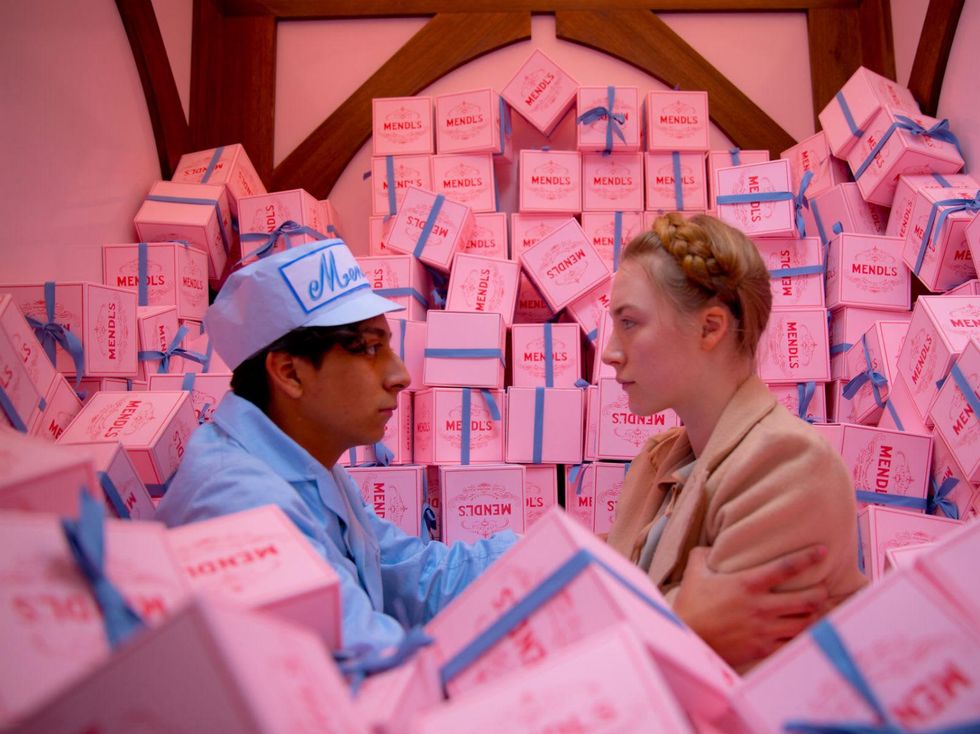Movie Quirkiness at its Finest
The Grand Budapest Hotel shows Houston-born director at his wacky best
Even if you’ve never quite understood the appeal of his films, it’s hard to knock Wes Anderson for his dedication to the craft. The Houston native who graduated from St. John's School and used the campus as the center of his cult movie, Rushmore, now made eight feature films, and thanks to his unique visual flair and attention to detail, each of them is instantly recognizable as an Anderson original.
The Anderson dial is turned to 11 in The Grand Budapest Hotel, which tracks the history of the titular hotel in the fictional republic of Zubrowka in Eastern Europe.
Gustave (Ralph Fiennes) is one of the most memorable characters to come out of an Anderson film in quite some time.
In particular it focuses on two men: M. Gustave (Ralph Fiennes), manager of the Grand Budapest during its heyday in the 1930s, and Zero Moustafa (Tony Revolori/F. Murray Abraham), a lobby boy in the ’30s who goes on to own the hotel.
The elder Moustafa tells a visiting writer (Jude Law) how he came to be the owner, and it’s a story that’s full of intrigue, humor, whimsy, death and — above all else — loyalty. It’s also one that’s enthralling from the moment he opens his mouth.
There’s so much going on in any Anderson movie that it’s difficult to pinpoint why it all works — or doesn’t, as the case may be. Although the elements he includes here don’t appear to be all that different from his previous films — eccentric characters, people moving in straight lines, random throwaway minutiae — they add up to a highly enjoyable experience.
One deceptively simple choice exemplifies the Anderson spirit and helps set this film apart from even his previous efforts. The film is mostly set in the 1930s, but it’s bookended by scenes in 1968 and 1985, and Anderson films each one of them in the aspect ratio appropriate to that time period.
It’s a trick that’s been done before, but it helps tremendously in setting the mood for each era. It also establishes Anderson’s movie nerd bona fides, letting the audience know they’re in the hands of someone who knows what he’s doing.
Another difference could be the tight editing by Barney Pilling, who worked with Anderson for the first time on this film. Cutting a scene too soon or too late can be detrimental to its effect on the audience, and Pilling’s work is spot on throughout the film, helping make every line and joke land perfectly.
Or it could be the performance of Fiennes, who makes his first appearance in an Anderson film and fits in seamlessly. His Gustave is prim and proper but also delightfully profane when the situation calls for it. This juxtaposition makes Gustave one of the most memorable single characters to come out of an Anderson film in quite some time.
And that’s saying something when he has to compete with many other distinctive characters. Revolori makes Zero an ideal foil for Gustave, something that’s only heightened when he’s given a love interest (Saoirse Ronan). Willem Dafoe plays a particularly menacing bodyguard with an underbite, surly demeanor and fistful of rings.
Then there’s the laundry list of actors, including many Anderson regulars, who bring something special to the film: Tilda Swinton, Jason Schwartzman, Bill Murray, Edward Norton, Owen Wilson, Adrien Brody, Jeff Goldblum, Harvey Keitel and more.
From the smallest details to the witty dialogue to the great acting across the board, The Grand Budapest Hotel is one of Anderson’s most successful outings. It’s hilarious, melancholy and everywhere in between, and it will have fans longing for him to come back soon.



